Search Results
Showing results 61 to 80 of 101

The Great Toss Off!
Source Institutions
In this math game, learners toss plastic cups to land just right and collect points to win.
Pom-Pom Probability
Source Institutions
In this math activity, learners predict how many pom-poms they can toss inside a circle from three feet away. Use this activity to help learners explore probability.

Bubble Sculpting
Source Institutions
In this activity, learners develop spatial reasoning skills as they blow bubbles and observe what happens when the bubbles connect.
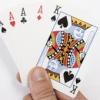
Two Sets!
Source Institutions
In this card game, learners make two sets of three cards that are alike. Learners must justify to the rest of the players why the three cards belong in each set.
Numbered Heads
Source Institutions
In this math activity, learners play a game and use a variety of strategies to solve a hidden number problem (or missing factor). Learners practice their number and operations skills.
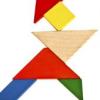
Tangram Challenge
Source Institutions
In this activity, learners use tangrams ( 7-piece puzzle tiles) to assemble a variety of shapes. Tangrams are ideal for improving spatial reasoning and geometry properties.
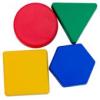
Copy Cats
Source Institutions
In this math activity, learners use what they know about shapes to copy a friend's hidden picture. Learners create a design out of pattern blocks and then hide their picture behind a screen.
Needlework Designs
Source Institutions
In this math activity, learners create symmetrical designs for paper models of special blouses known as huipiles.
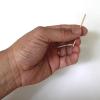
Toothpick Patterns
Source Institutions
In this hands-on activity, learners use toothpicks to build different triangles and squares and then use the toothpicks to build and solve some tricky shape puzzles.

Guess My Rule
Source Institutions
In this math activity, learners play a game and try to be the first player to identify their partner's rule. Learners identify the rule by finding commonalities between three familiar objects.
Cardio Comparisons
Source Institutions
In this activity, learners discover how their heart rate changes in different situations.

Bank It!
Source Institutions
This simple but open-ended math game introduces basic probability concepts using coins and dice. Players roll the dice and collect coins to match the number rolled.
Squeeze Me!
Source Institutions
In this math activity, learners guess a secret number between 1 and 100 in a three-player game.
Magic Turtle Squares
Source Institutions
In this math activity, learners create a magic turtle where all the rows, columns and diagonals add up to fifteen.

Equal Sharing Game
Source Institutions
In this activity, learners are introduced to division and fractions as they share snacks with a group of friends.
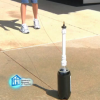
Number of Mentos vs. Height: Soda Geyser Series #5
Source Institutions
In this activity, learners conduct a controlled experiment to examine how many Mentos are needed to make the tallest possible soda geyser.

Soda Brand vs. Height Experiment: Soda Geyser Series #4
Source Institutions
In this activity, learners conduct a controlled experiment to examine which brand of soda makes the best (highest) soda geyser.
Movin' and Groovin'
Source Institutions
In this math activity, learners play a game and identify patterns with fun moves and sounds. Discover how dancing and signing involve patterns.
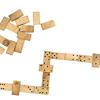
Domino Trains
Source Institutions
In this activity, learners practice matching and subitizing as they create the longest domino train possible.

Good Catch!
Source Institutions
In this activity, learners "go fishing," then practice ruler use and size/pattern comparison with the animals they catch.
